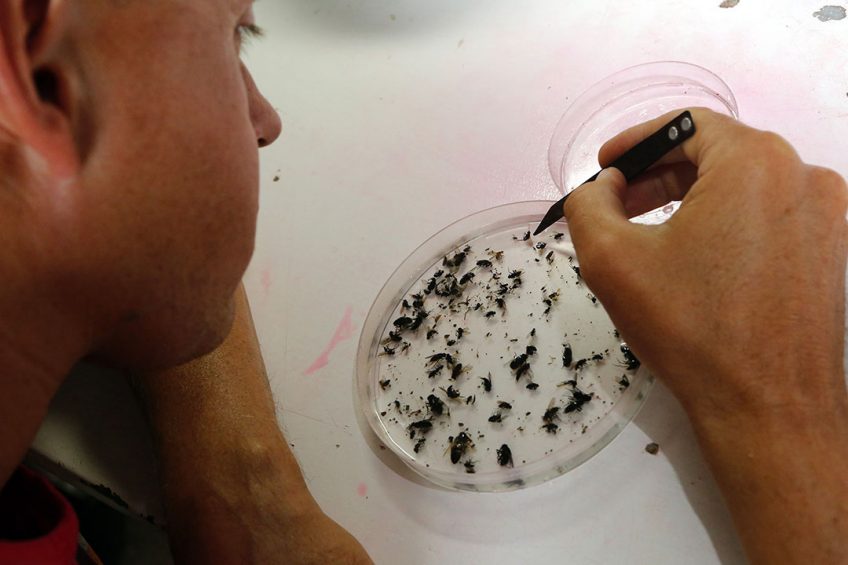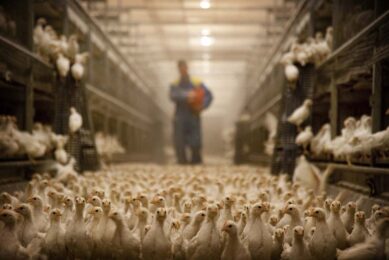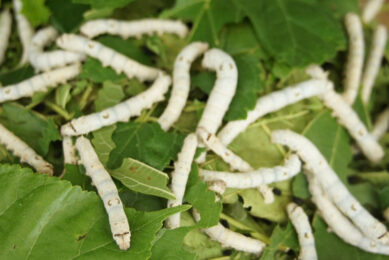Generous funding for emission reducing poultry initiatives

Transforming waste food into animal food using carbon cutting technology and insects has enabled one fly farming company to scoop a £5.9m award from UK Research and Innovation (UKRI). It is one of a number of grants that have been made available to support feasibility projects across the livestock sector.
The funding for London-based insect rearing company Entocycle and its partners will allow them to scale up their cutting-edge farming model in the UK and across the world. Entocycle’s innovative technology breeds black soldier flies which feed on unused food, such as rejected supermarket produce. The insects are then harvested and processed into animal feed using a highly automated system that is profitable, sustainable and scalable. Rolling the technology out across the country will make UK food production more efficient and less carbon intensive and has the potential to create 3,000 UK-based jobs.
Katrina Hayter, challenge director of UKRI’s Transforming Food Production programme, said: “The Entocycle-led project is one of the most interesting and exciting projects we have funded. Our aim is to make the UK a global hub for black soldier fly farming. Successful development and scaling up of this technology should lead to a significant boost in recycling of food waste and a reduction in emissions.
There are many innovative projects in our latest feasibility competition showcasing ideas for improving productivity and cutting emissions that range across the whole agricultural sector, from arable, to livestock, to sensor technology and to new biopesticides.”
Ongoing funding and support involves at least 3 wider poultry projects:
 Ducks
Ducks
Support is being given to improving leg health and reproductive performance in commercial duck breeding flocks. The research, led by Cherry Valley Farms Ltd with partners the University of Edinburgh and Hudson and Sanders Ltd, will use a range of technologies. These include sensors, image recognition and genomic pedigree to improve reproduction and welfare at both the genetic and commercial population level.
 Net Zero poultry house
Net Zero poultry house
Major Northern Ireland broiler company Moy Park Ltd will develop and evaluate new approaches to poultry housing and management that results in improved animal well-being and performance as well as enhanced energy and resource efficiency. Moy Park will be working with poultry housing firm JF McKenna Ltd and scientists from Queen’s University, Belfast.
 Robots
Robots
Researchers from Harper Adams University will test the feasibility of a robot to apply microbial cleansers to poultry houses to improve both the environmental impacts of poultry production and improve animal. Others involved in the venture include Ross Robotics Ltd, Hudson and Sanders Ltd and Pruex Ltd.
 Beheer
Beheer




![Andrea Jagodic, Flybox co-founder and CEO: “Now, with the funding[...] we can push forward in our mission to facilitate sustainable farming practices and increase global food security by unlocking insect farming on a wider scale for farmers that desperately need solutions today.” Photo: FlyBox](https://www.poultryworld.net/app/uploads/2023/08/IMG_FlyBox-389x260.jpg)






 WP Admin
WP Admin  Bewerk bericht
Bewerk bericht